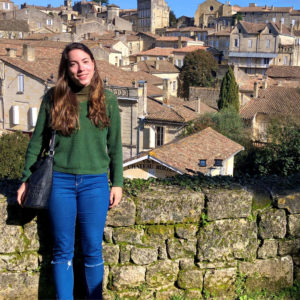Transfers-Fluids-Materials in Aeronautical and Space Applications (TFM-ASA)
This international Master program combines studies and research based on transfers, fluids and materials in aeronautical and space applications.
Quick Facts |
|
| Duration: | 2 years (132 ECTS) |
| Starting Date: | The academic year generally starts end September/early October and finishes end May the following year |
| Tuition Fee: | Annual registration fees for all selected applicants are calculated according to the rules and regulations of the University of Bordeaux. Please consult the Admission & Financing section and/or the University of Bordeaux website for specific details. |
| Location: | University of Bordeaux |
Program outline
The TFM-ASA program combines studies and research based on aerodynamics, thermodynamics, compressible flows, turbulence, propulsion, combustion, turbomachinery, material science, to name a few. These themes are all directly connected with technical and fundamental studies as well as with aircraft, spacecraft, drone issues, etc.
The program is jointly managed by three academic European partners (France, Germany and Belgium) together with the support and expertise of:
Bordeaux / France:
- Industrial partners such as IRT St Exupery (Technological Research Institute), BAAS Society (Bordeaux Aquitaine Aéronautique et Spatial) and Aerospace Valley.
- Leading research laboratories, strongly involved in the aeronautic field such as I2M, LCTS, IMB (UBx).
Louvain-la-Neuve / Belgium:
- Applied Research Center CENEARO.
- Research Laboratories: IMMC (UCL).
Cottbus-Senftenberg / Germany:
- Close collaborations with space agencies (ESA, DLR), ROLLS ROYCE, MTU Aero Engines.
- Research Laboratory: CFTM² at BTU
These industrial partners provide specialized classes and internships to the program, thus providing the students with an overview about the actual issues faced by companies today. The result is a top-quality, highly-renowned international Master degree that meets the 120 ECTS syllabus requirements and corresponds with current job market criteria.
Strengths
- International program taught by experts (academics and industrial partners) from three different
universities in Europe. - Joint French/German and Belgian Master degree.
- International mobility period in the partner countries (2 semesters).
- Close collaboration with industrial partners and research institutes with a guarantee of intensive training periods.

When preparing for my mobility experience, I read up a lot about French universities and decided that the University of Bordeaux was the most interesting option for me. This long-standing, traditional university is highly renowned in France and the world, and welcomes many international students. The city of Bordeaux is world-famous, located in a beautiful and diverse region – it is a wine-producing area close to the ocean and the mountains – and I can confirm that it lives up to its great reputation!
Anita Bueno-Tavares // Bachelor student from São Paulo State University (UNESP), Brazil // Field of studies: Law
Careers
After graduation, students may access career opportunities such as:
- Engineers in companies / nengineering departments of aeronautical and space sectors.
- Continuing their studies as PhD students and, after completion of their PhD, becoming postdoctoral researchers or assistant professors in universities or engineering schools.
